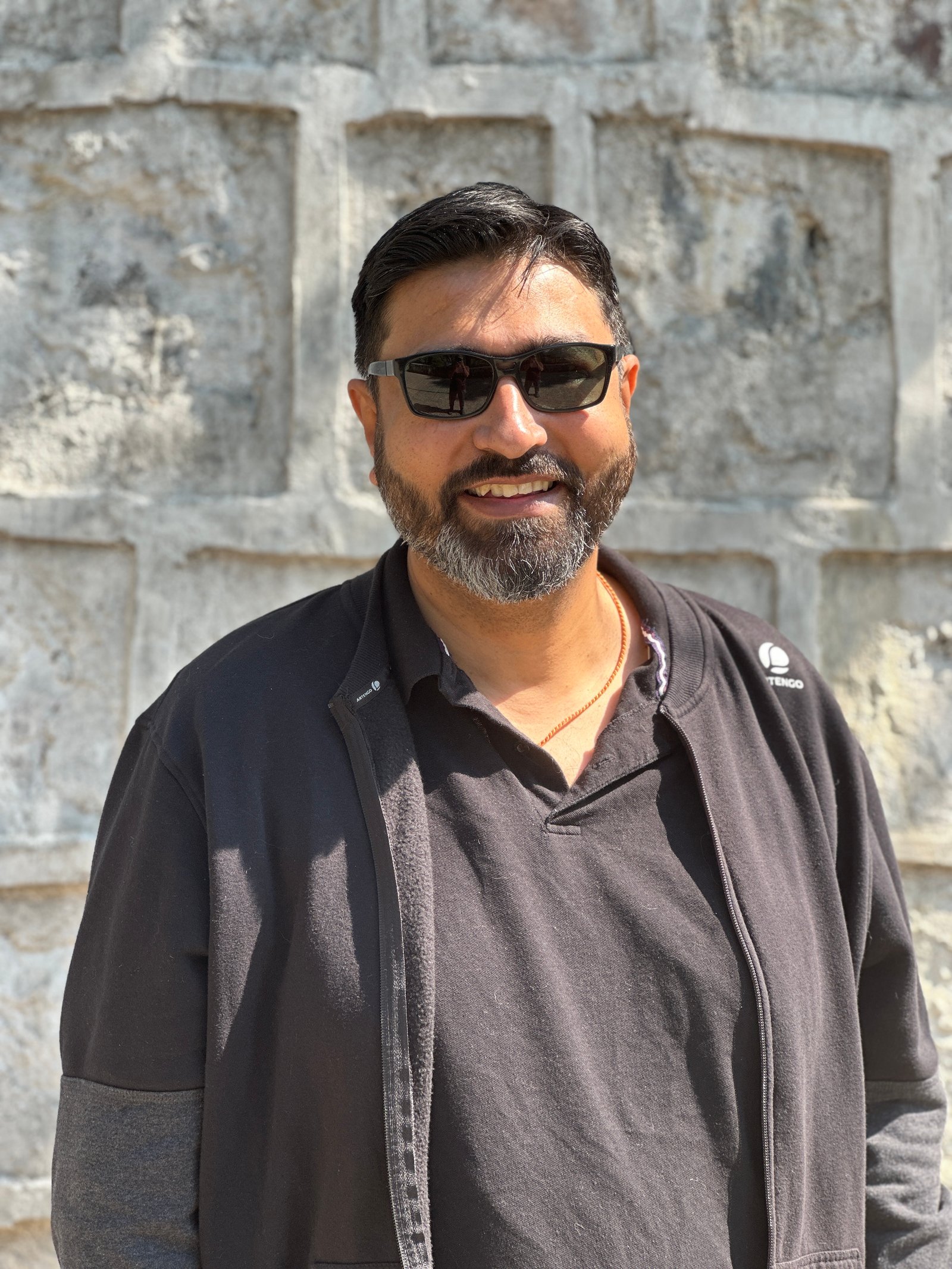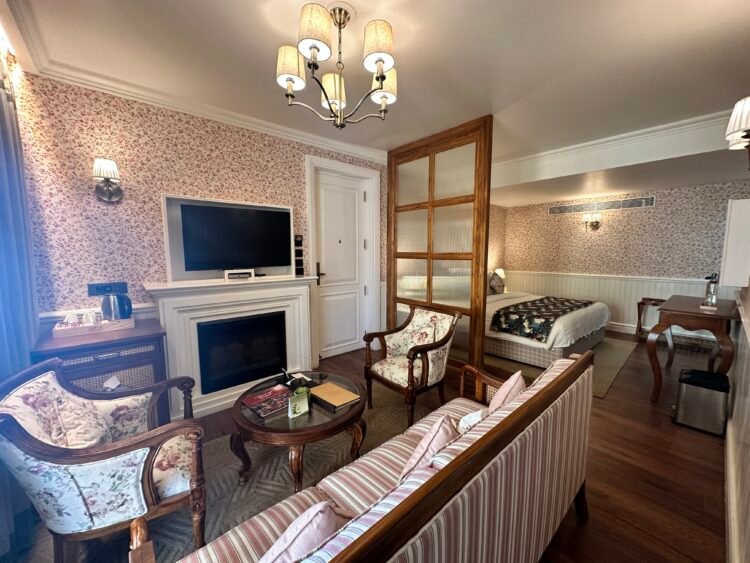No products in the cart.
“Hospitality Is About Creating Experiences, Not Just Comfortable Rooms”
An interview with Arindam C. Bahel, General Manager – Operations (North India), Concept Hospitality, and GM, The Fern Brentwood Resort, Mussoorie

Perched above the bustle of Mall Road, The Fern Brentwood Resort Mussoorie exudes an old-world charm that meets modern sensibility. At its helm is Arindam C. Bahel, the General Manager – Operations (North India) for Concept Hospitality and the man responsible for shaping the hotel’s distinctive character—a blend of colonial nostalgia, mountain warmth, and contemporary comfort. A chef by training and a hotelier by evolution, Bahel’s journey from the kitchens of Mumbai to the hilltop serenity of Mussoorie is as flavourful as the food he curates. Over a long conversation, he talks about his early life, his culinary philosophy, and the art of turning a stay into an experience.
Q: Tell us a little about where you grew up and your early years.
I was born and raised in Ranchi—then part of Bihar, now Jharkhand. My father was Punjabi, my mother Bengali, and she was a schoolteacher. I studied at Bishop Westcott Boys’ School and later Vikas Vidyalaya. After my father passed away, it was my mother and grandmother who raised me. I did my 11th and 12th from Army School, Bengdubi near Darjeeling, while my mother was teaching at Modern Academy in Jalpaiguri.
Q: How did you find your way into hospitality?
Honestly, I wanted to be a doctor. But I always loved food—cooking it, eating it, experimenting with it. I guess that mix of Punjabi passion and Bengali love for food pushed me toward the kitchen. I joined a hotel management college in Goa, and once I got into hospitality, I never looked back.
Q: What was your first professional experience in the industry?
I started in Mumbai in 2002 with Orritel Hotels as a management trainee. Later, I moved to Rodas at Hiranandani and then to Meluha The Fern. Around that time, the company went through a restructuring—Concept Hospitality became the management arm of the group—and I grew within that system, eventually becoming Executive Chef at just 26.
Q: You also worked abroad for a while, right?
Yes, I spent about three years in San Francisco at Amber India, an Indian restaurant within JW Marriott downtown. It was a great learning experience. San Francisco has such an inclusive food culture, open to Asian and Indian influences. The city is vibrant, diverse, and food-wise, incredibly forward-thinking. That stint broadened my perspective immensely.
Q: And after returning to India?
I rejoined The Fern Hotels at the corporate office as Corporate F&B Manager, then moved to Holiday Inn Jaipur as Executive Chef. Later, I went to Yak & Yeti in Kathmandu. The Sarafs, who own it, were remodelling their coffee shop into a dual-concept space—casual by day, fine dining by night. We created a very refined menu with dishes like pork belly ghee roast on paratha—fusion, but done with integrity. The concept was doing very well, but COVID arrived and shut things down.
Q: How did the post-COVID phase unfold for you?
After a year’s break, I joined Ananta Udaipur as Executive Chef, and later moved into operations. Six months later, I was called by my former boss, Mr Suhail Kannampilly, to take over The Fern Brentwood Resort Mussoorie. I’d always loved the hills, so I said yes without hesitation.
Q: What was the situation like when you joined Brentwood?
When I came in, the hotel was operational but undergoing major renovation. We didn’t shut down completely—just closed off certain wings in phases. The goal was to retain the colonial charm of Brentwood while upgrading it with modern amenities and luxury. The owners, architects, and I worked closely together, and I think we found the right balance.
Q: How big is the property now?
We have 72 rooms across seven categories—Winter Green, Fern Club, Hazel Suites, Winter Green Premium, Fern Club Suites, and the Brentwood Suite. The difference between Winter Green and Fern Club rooms is mainly the view, but each category has its own personality. The suites are contemporary yet rooted in the mountain aesthetic.
Q: The Fern brand is known for its eco-sensitive approach. How do you bring that into Brentwood?
Sustainability is central to everything we do. We’ve reduced plastic use drastically and switched to alkaline bottled water instead of packaged mineral water. We use eco-friendly tissues, amenities, and biodegradable materials wherever possible. Our aim is to become a zero-plastic property eventually—but never at the cost of guest comfort.
Q: As someone from an F&B background, how do you define the role of food in the guest experience?
Rooms can be luxurious anywhere. But the true memory of a stay comes from service and food—the sensory experiences. That’s where you connect emotionally with the guest. Our breakfast, for instance, is our pride. Everything is made live—parathas, dosas, eggs, pancakes, waffles. We serve local honey, homemade flavored butters, and freshly baked breads. I always say, if you’re staying in a leisure property, your first meal should make you feel you’re on vacation. That’s why we never sell a room without breakfast.
Q: What’s special about the high tea experience here?
We have something called Rumak, which means “evening” in Garhwali. It’s our version of a relaxed high tea. Guests gather for chai, pastries, tea cakes, cookies, and corn on the cob. There’s music, sometimes games like Tambola, and an easy, social vibe. It’s our way of bringing the charm of Mall Road indoors—minus the crowds.
Q: The Fern Brentwood is known for its food festivals too. Tell us about that.
We launched the Flavours of India series in 2023. Each edition focuses on a different region—street food, Rajasthani, and soon, Uttarakhand and Punjab. Along with food, we add cultural experiences. For example, during the Rajasthani festival, we had Langa singers and traditional dancers. For the upcoming editions, we’ll feature folk artists from Punjab and Uttarakhand. It’s about giving guests not just a meal, but a cultural connection—something immersive and joyful.
Q: How would you describe what you want guests to feel at Brentwood?
I want them to feel at ease. To slow down. To enjoy their meals, their surroundings, and each other’s company. Mussoorie can get crowded, so I want The Fern Brentwood to be a retreat—where you can relax, watch a performance, have a good drink, and just breathe. That, to me, is true hospitality.
















